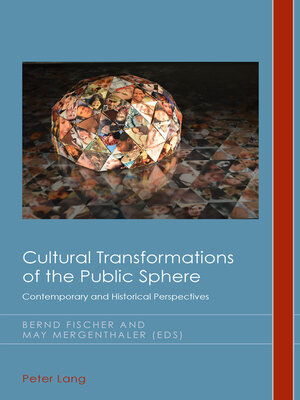Cultural Transformations of the Public Sphere
ebook ∣ Contemporary and Historical Perspectives · Cultural History and Literary Imagination
By Christian Emden

Sign up to save your library
With an OverDrive account, you can save your favorite libraries for at-a-glance information about availability. Find out more about OverDrive accounts.
Find this title in Libby, the library reading app by OverDrive.



Search for a digital library with this title
Title found at these libraries:
| Library Name | Distance |
|---|---|
| Loading... |
The last decade has seen renewed interest in political theories of the public sphere, reacting to new challenges posed by globalization, communication technology, and intra- and international conflicts. However, the role of culture and aesthetics in the formation of the public sphere has received insufficient analytical attention. The essays in this volume explore different strategies for enriching the ongoing debates on this issue, ranging from historical case studies to theoretical examinations of cultural interdependencies and the aesthetic potential of literature and art. The contributions implicitly challenge Jürgen Habermas' assumption that the public discourse about art and literature should be seen as a mere precursor to the emergence of the public sphere in the eighteenth century, which, from his point of view, is best discussed in the terminology of political theory.
Topics range from the French Revolution's exclusive social metaphors to Herder's anticipation of virtual publics, from the distortions of public communication to revolutionary potentials of popular taste, and from postcolonial feuilletons to the global bio-political imaginaries evoked by mobile communication. The essays are intended for scholars and students in political theory and philosophy as well as in German, Latin American, and Modern Hebrew literature and culture.
Topics range from the French Revolution's exclusive social metaphors to Herder's anticipation of virtual publics, from the distortions of public communication to revolutionary potentials of popular taste, and from postcolonial feuilletons to the global bio-political imaginaries evoked by mobile communication. The essays are intended for scholars and students in political theory and philosophy as well as in German, Latin American, and Modern Hebrew literature and culture.







